Normal Counting Worksheets for Ages 5-7
17 filtered results
-
From - To
Discover a vibrant collection of Normal Counting Worksheets designed specifically for children aged 5-7. These engaging and interactive worksheets help young learners master essential counting skills through fun activities tailored to their developmental stage. From counting objects to tracing numbers, each worksheet supports early math education and enhances fine motor skills. With colorful illustrations and age-appropriate challenges, children will enjoy practicing their counting abilities while building a strong foundation for future math learning. Perfect for home or classroom use, these worksheets make counting an exciting adventure for your little ones! Download and watch their confidence grow today!
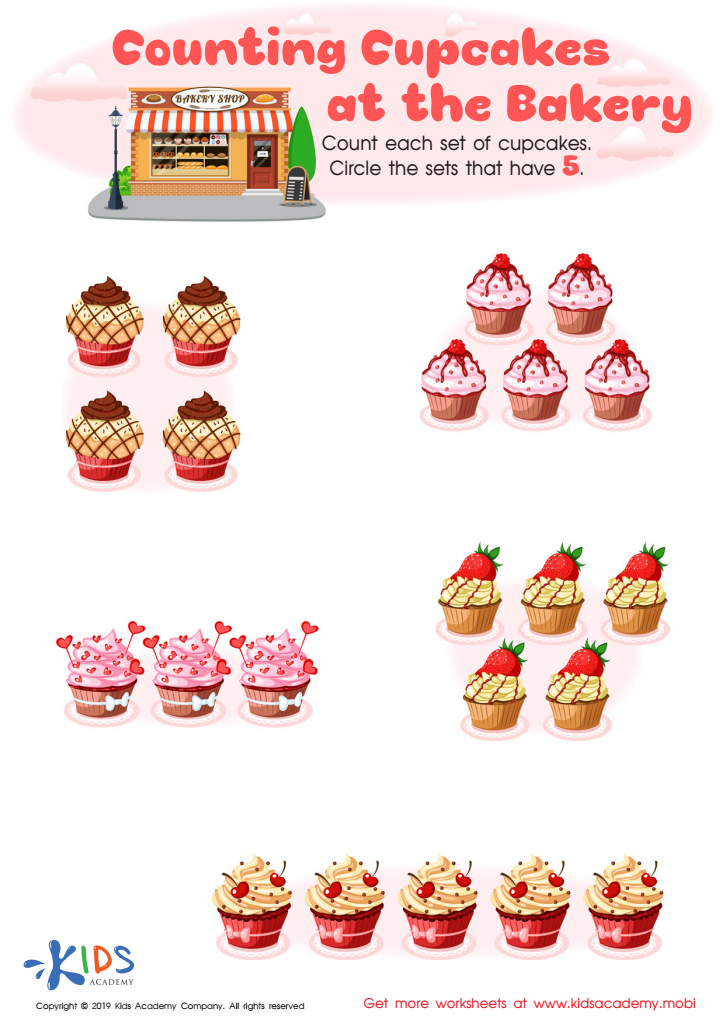

Counting Cupcakes Worksheet
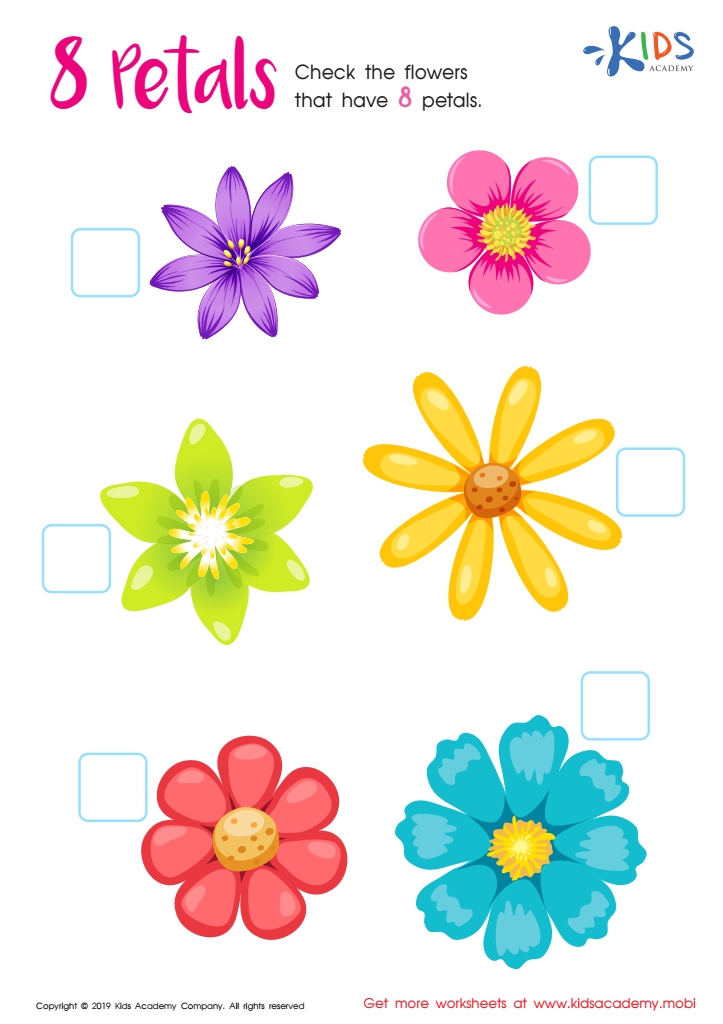

8 Petals Worksheet
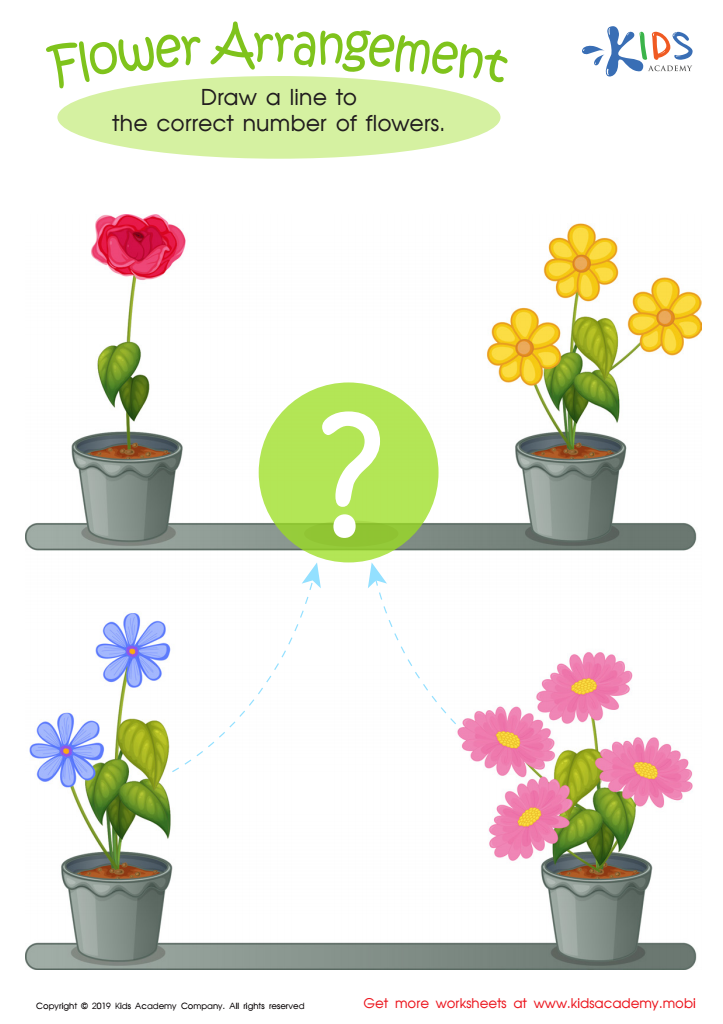

Flower Arrangement Worksheet
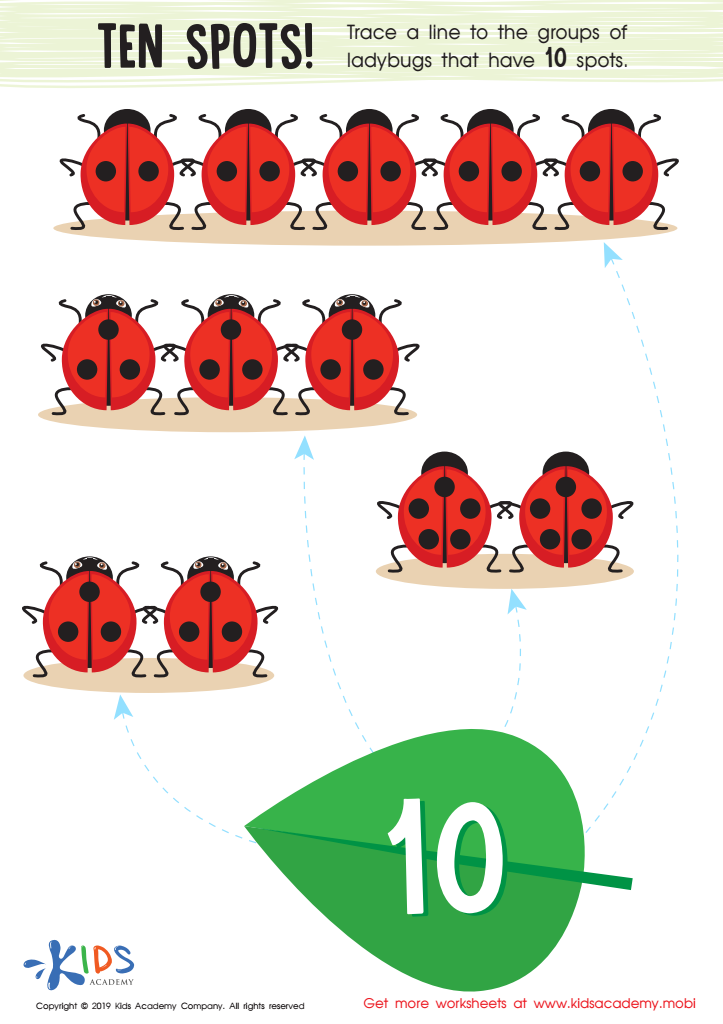

Ten Spots Worksheet
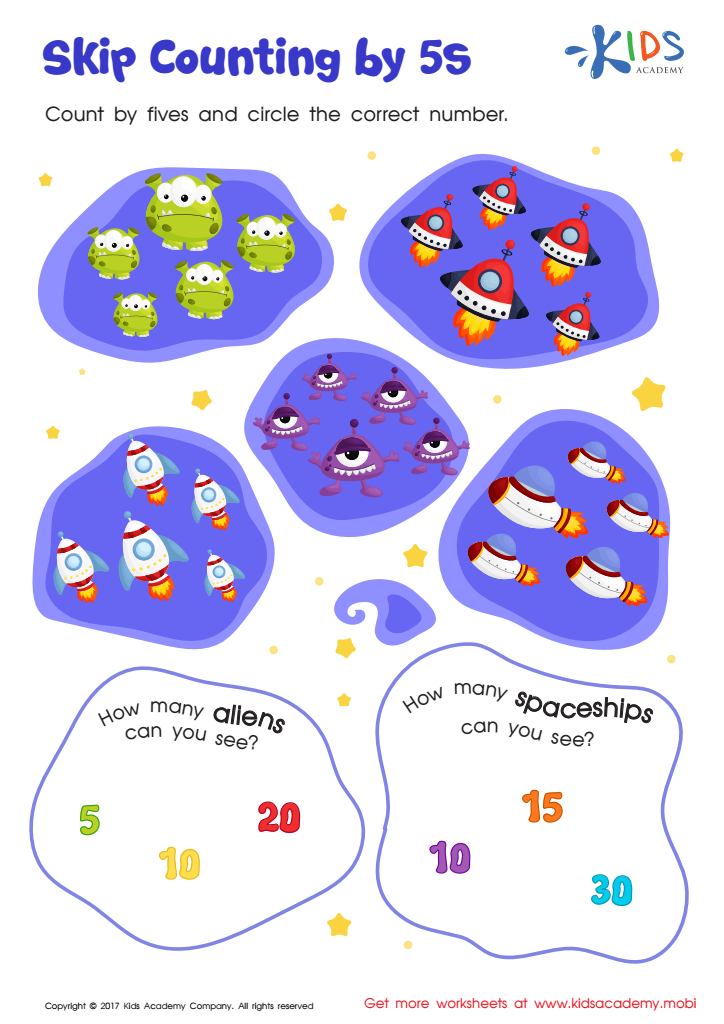

Skip Counting by 5s: Aliens and Spaceships Printable
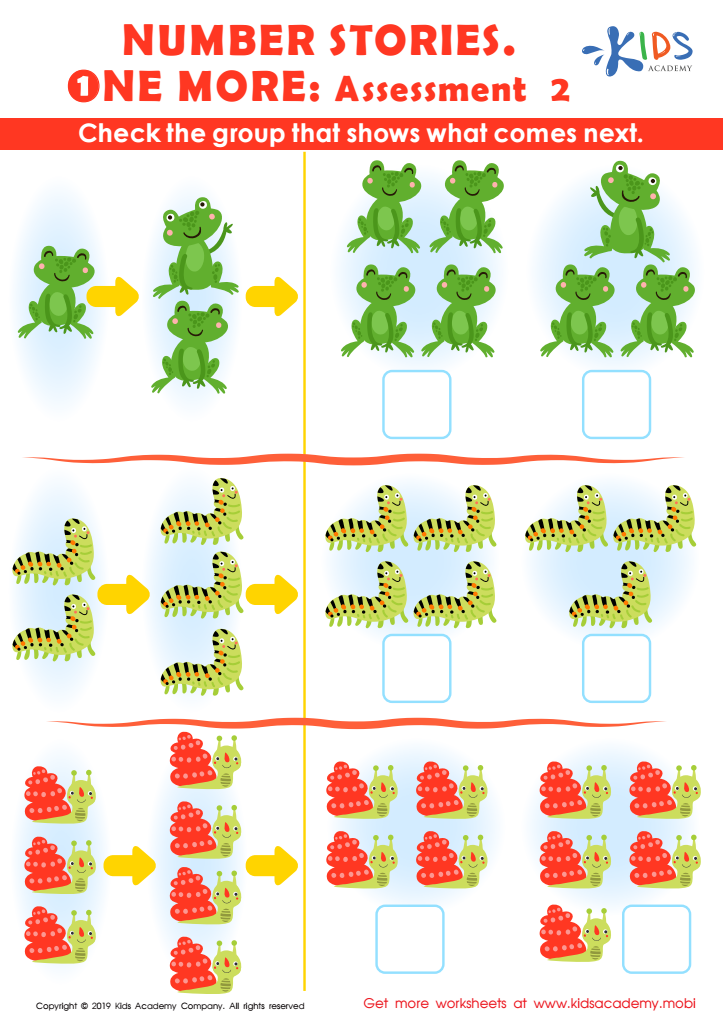

Number Stories One More – Assessment 2 Worksheet
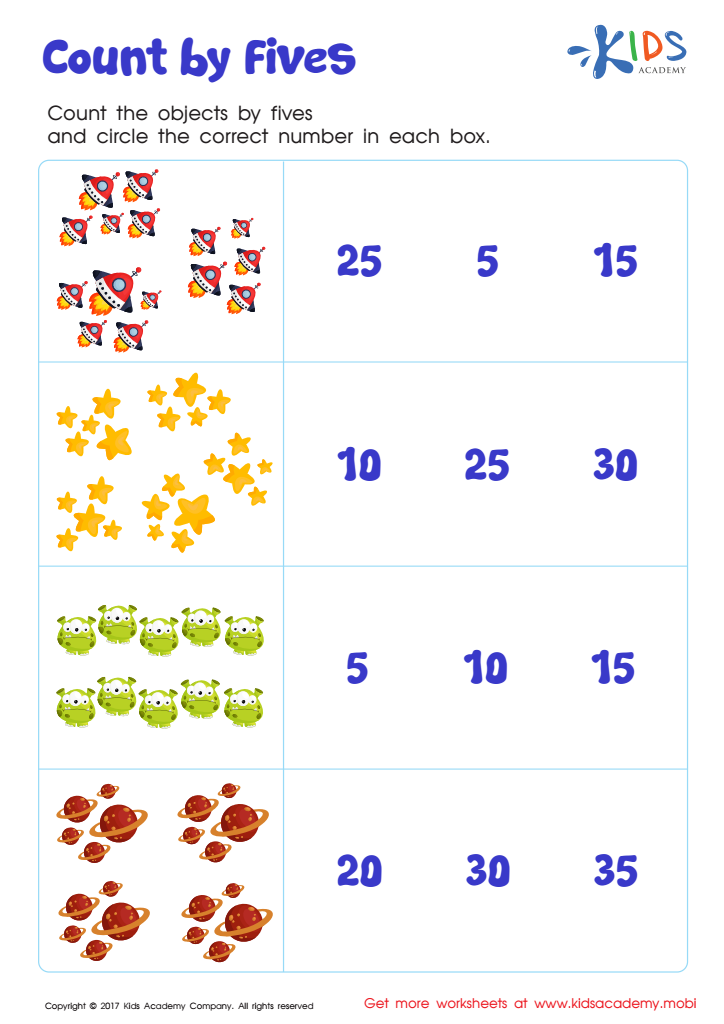

Skip Counting by 5s: Space Math Printable
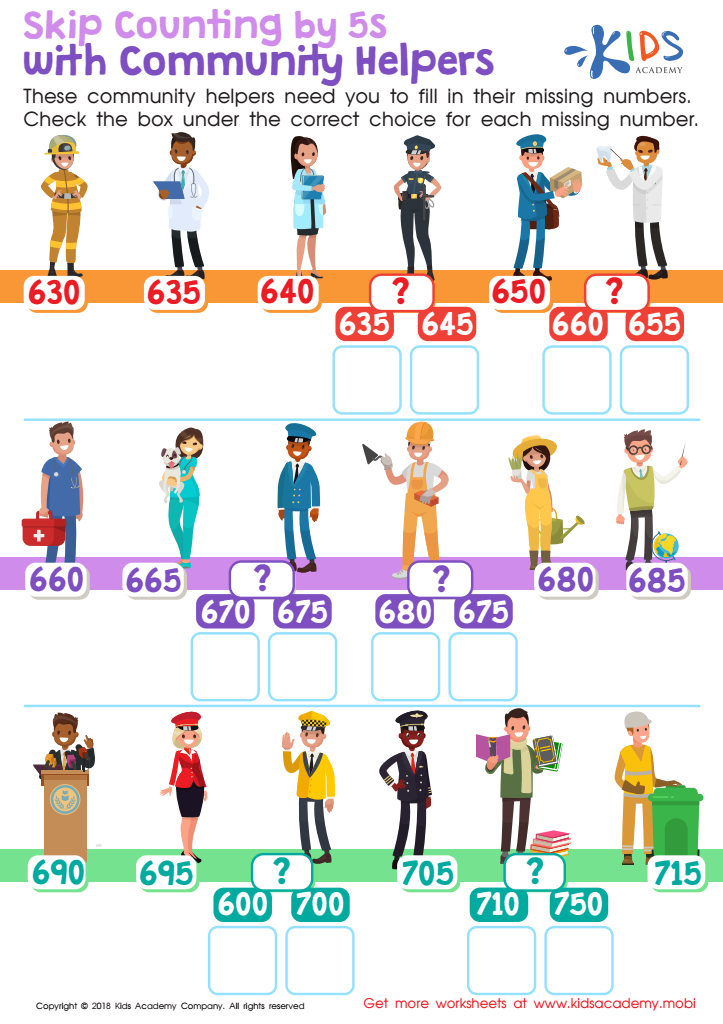

Skip Counting by 5s With Community Helpers Worksheet
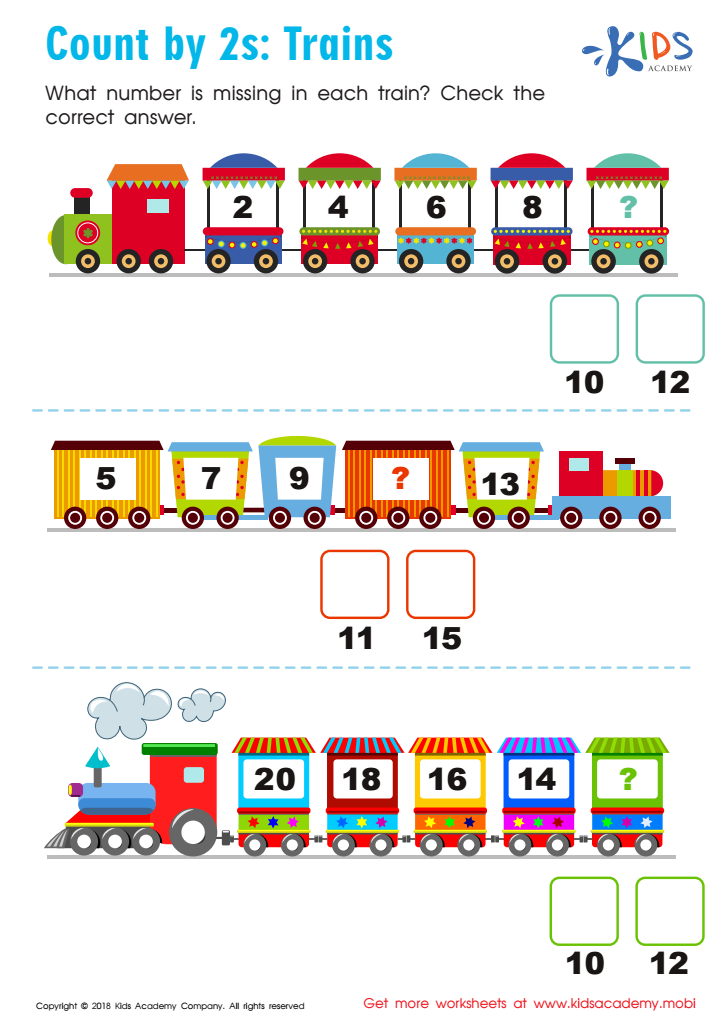

Count by 2's: Trains Worksheet
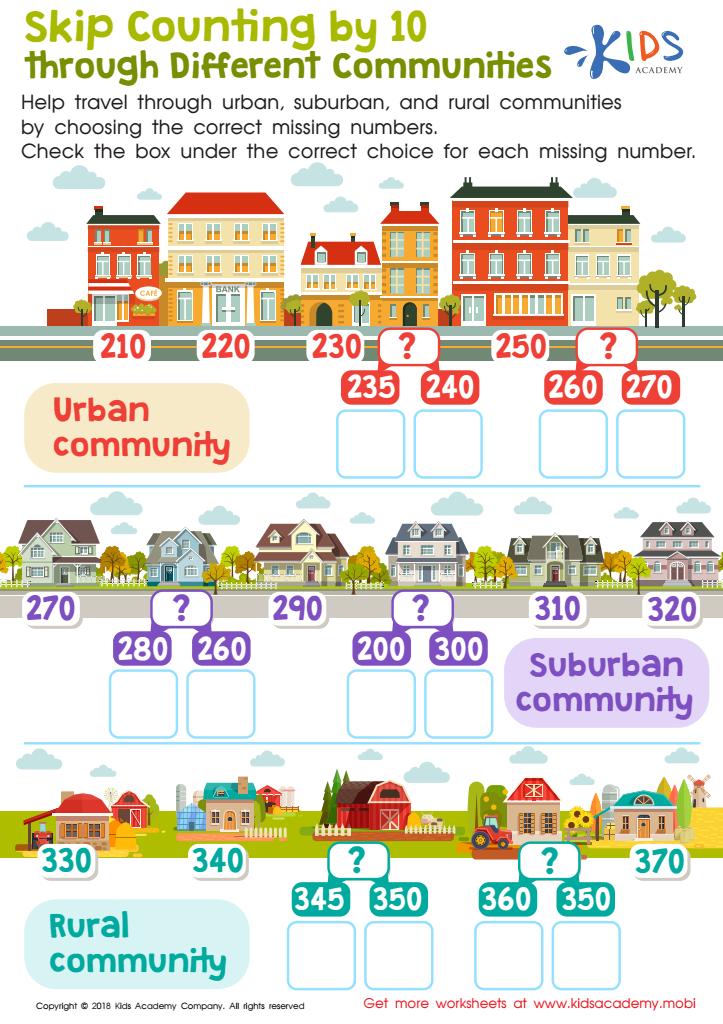

Skip Counting by 10 through Different Communities Worksheet
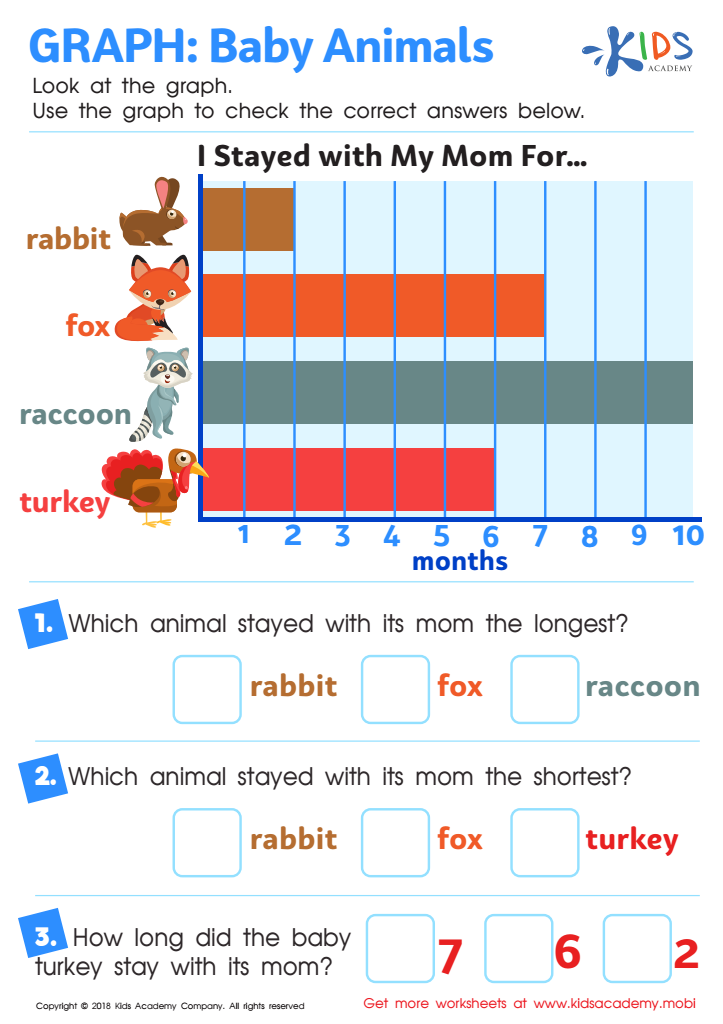

Graph: Baby Animals Worksheet
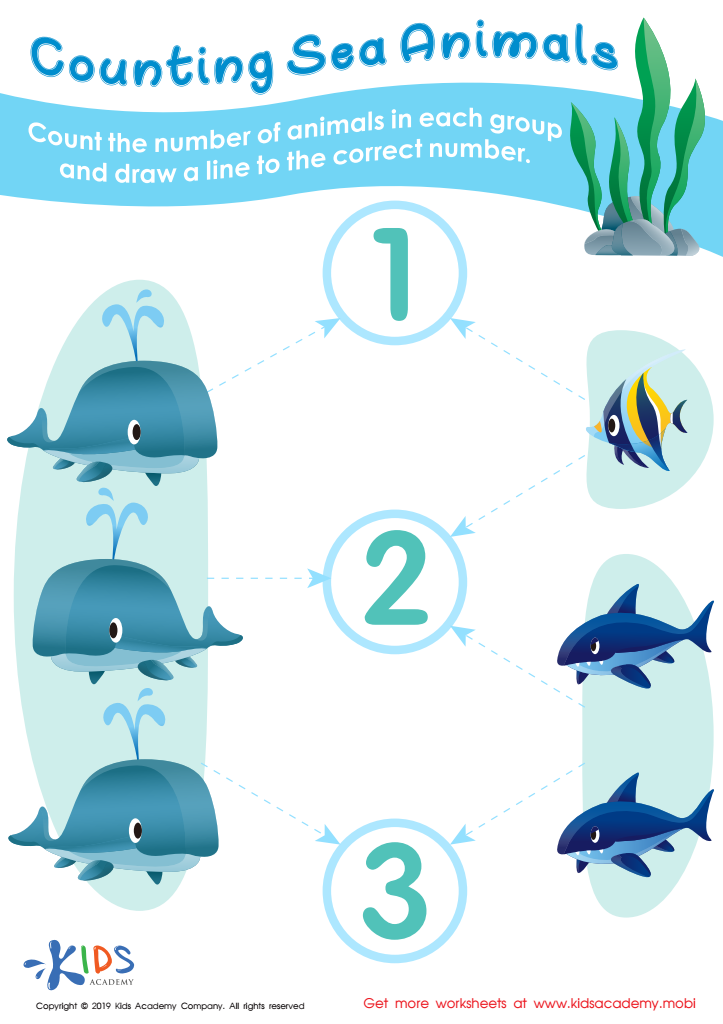

Counting Sea Animals Worksheet


Frog Countdown Worksheet
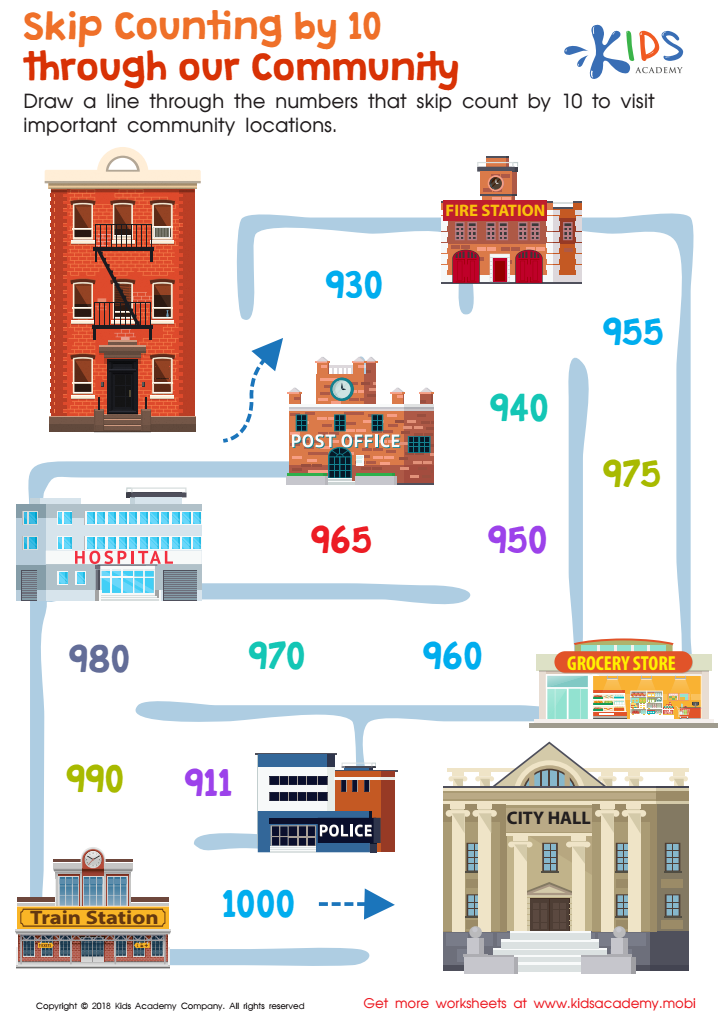

Skip Counting by 10 Through Our Community Worksheet
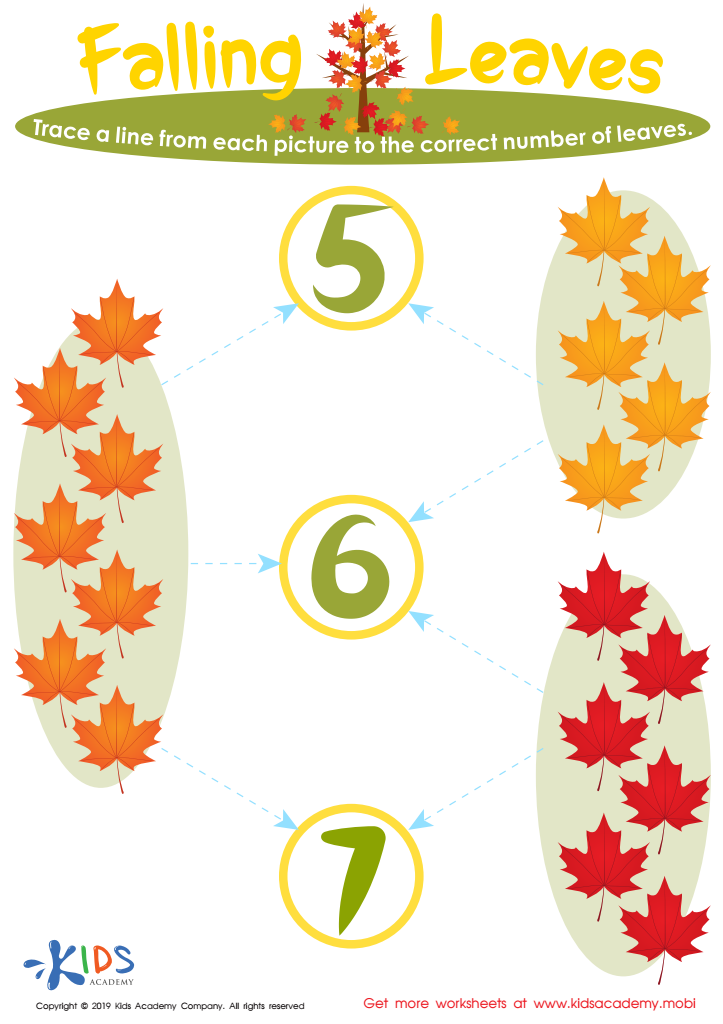

Falling Leaves Worksheet
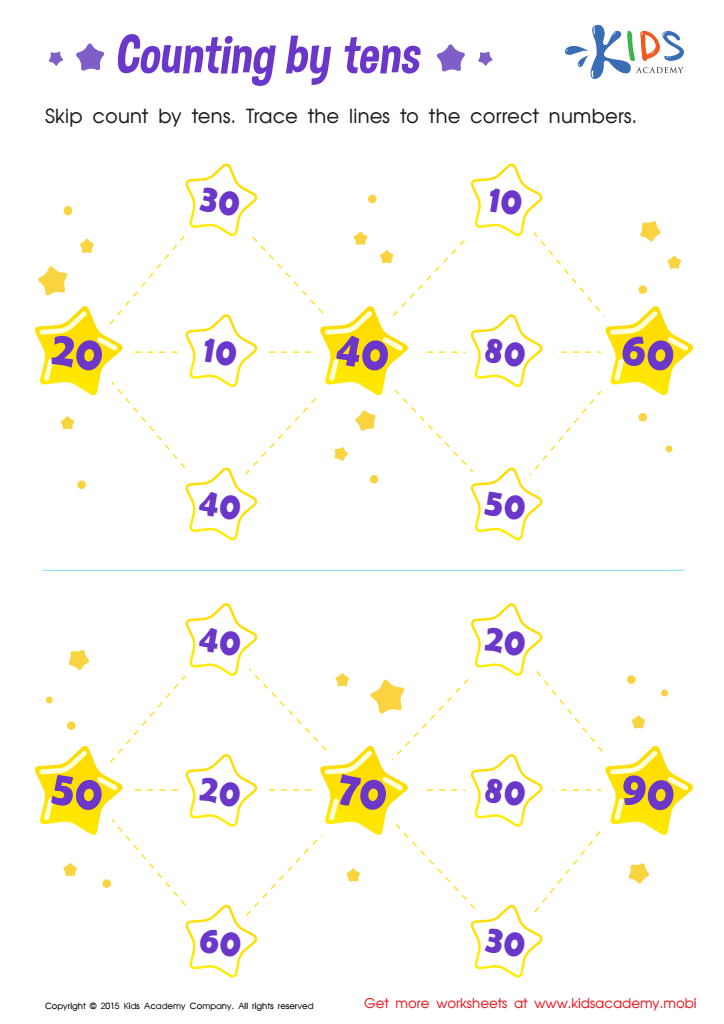

Learn Dozens: Counting by Tens Printable
Normal counting is a fundamental skill that lays the groundwork for a child's mathematical understanding and overall cognitive development. For parents and teachers, nurturing this skill in children aged 5 to 7 is critical for several reasons.
Firstly, counting teaches children about sequences and helps them understand the concept of quantity. Mastering counting builds their confidence in engaging with number-related activities, paving the way for more complex mathematical concepts like addition and subtraction. Furthermore, counting forms a bridge to developing problem-solving skills, which are vital across various areas of learning.
Moreover, counting encourages language development as children learn number names, improving their vocabulary and comprehension skills. Engaging children in counting activities, through games, songs, or everyday tasks, fosters a positive attitude toward learning math.
Additionally, counting aids in the development of fine motor skills through hands-on activities, such as setting up counting manipulatives. Lastly, a solid foundation in counting enables children to begin linking numbers to real-life contexts like shopping or sharing, enhancing their ability to relate math to the world around them. Investing time in reinforcing counting skills can greatly influence children's academic success and lifelong learning habits.

 Assign to My Students
Assign to My Students
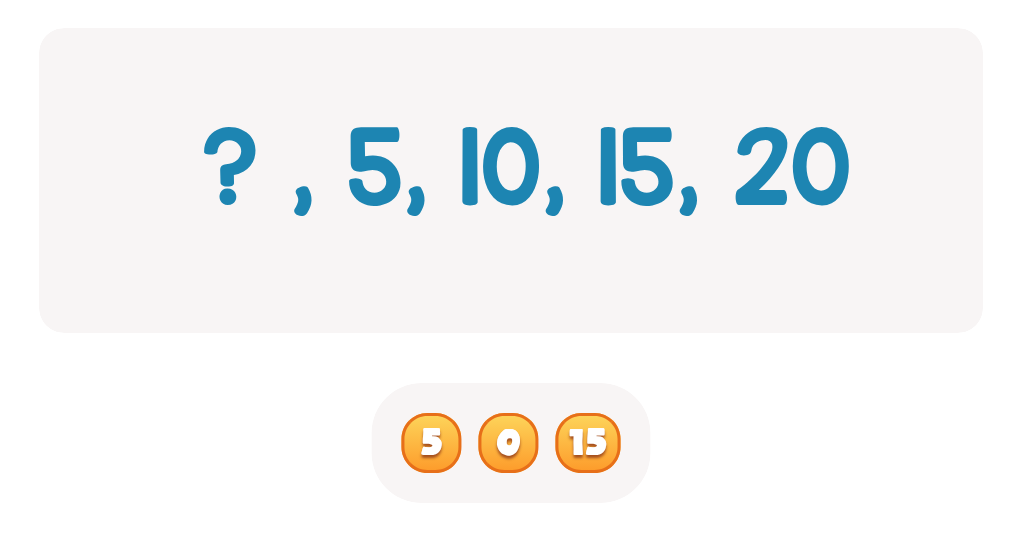
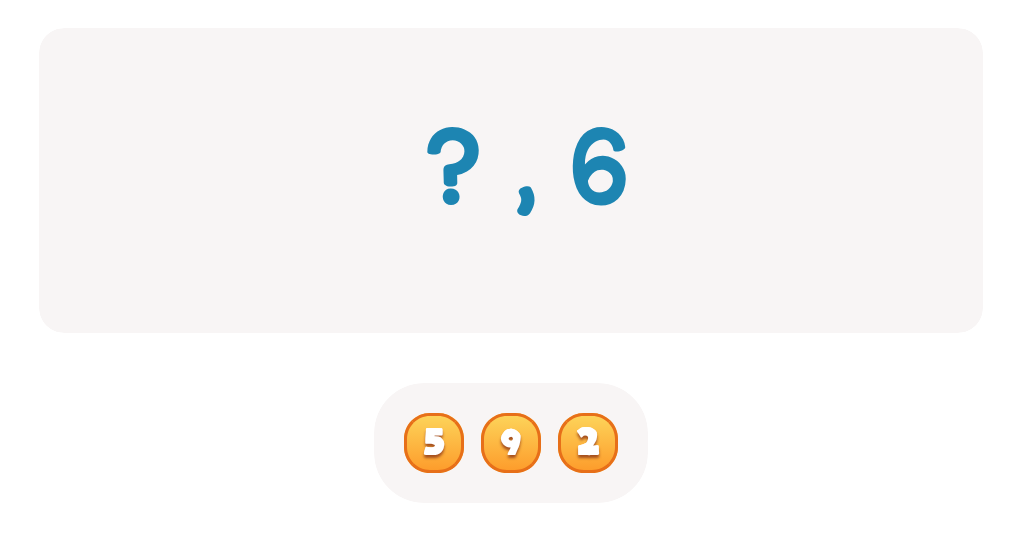
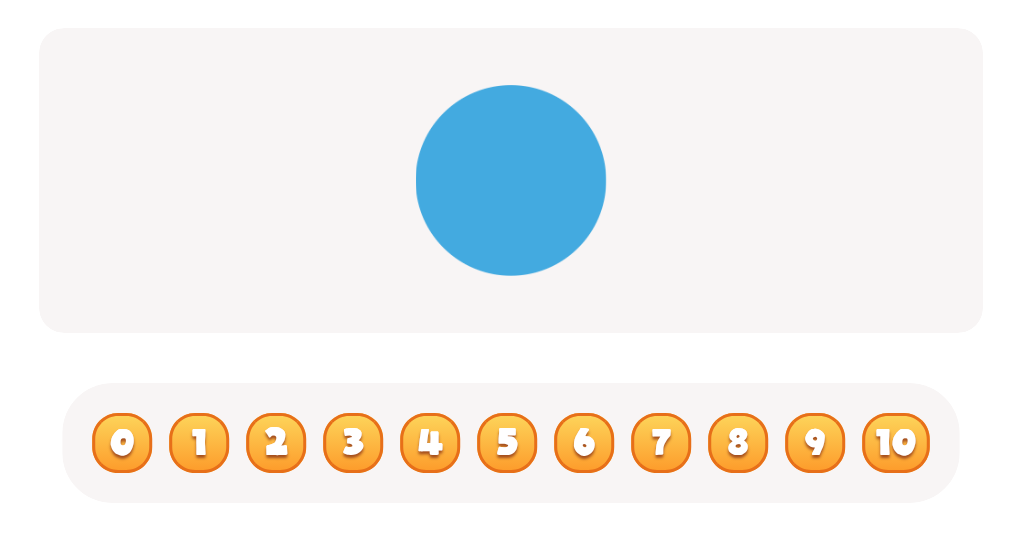
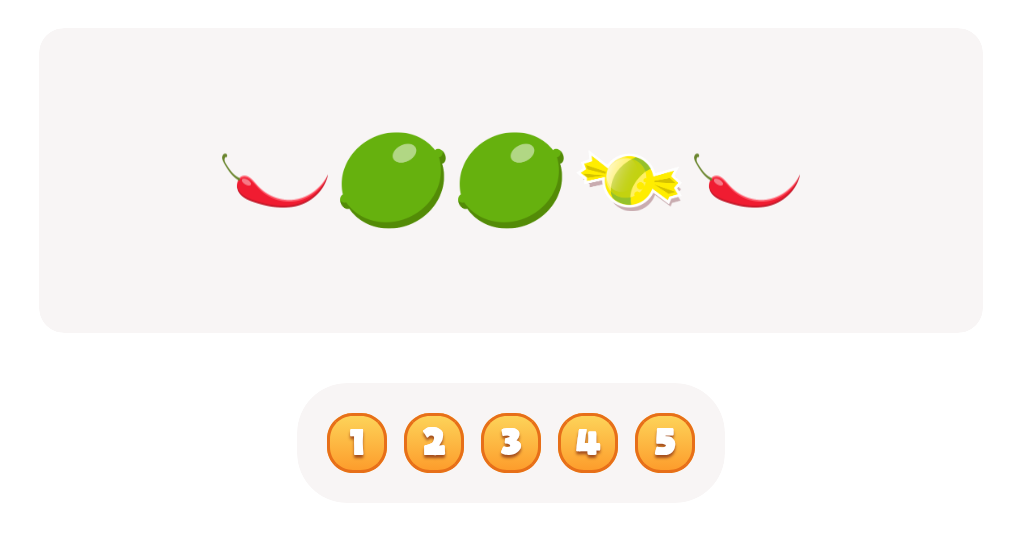
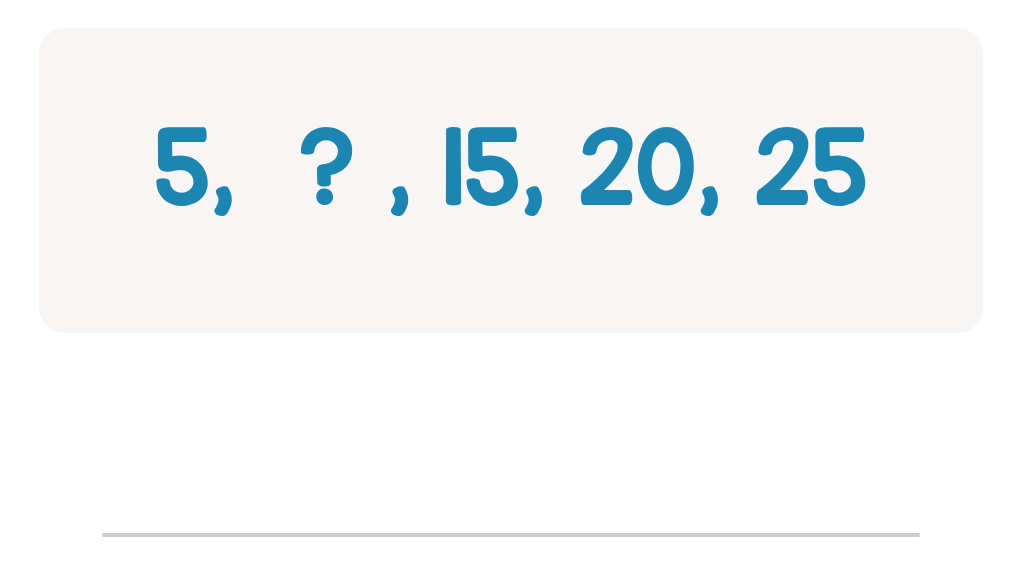
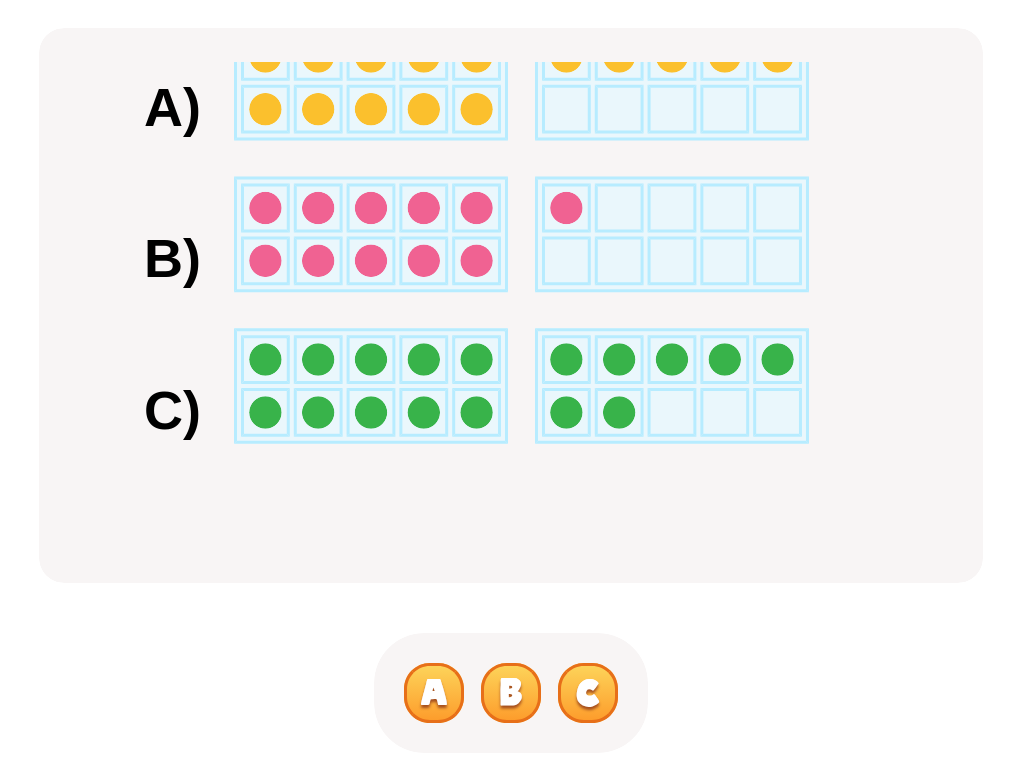
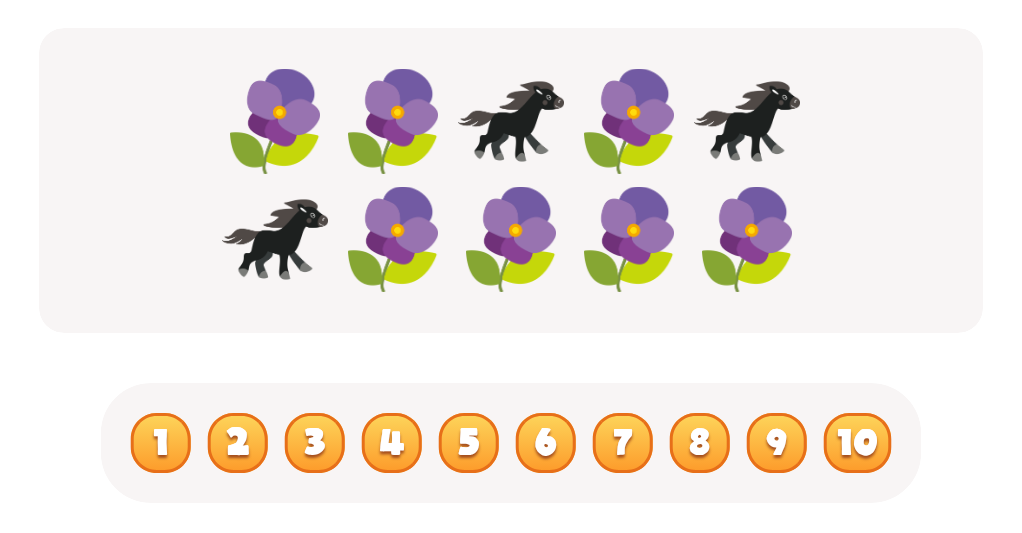
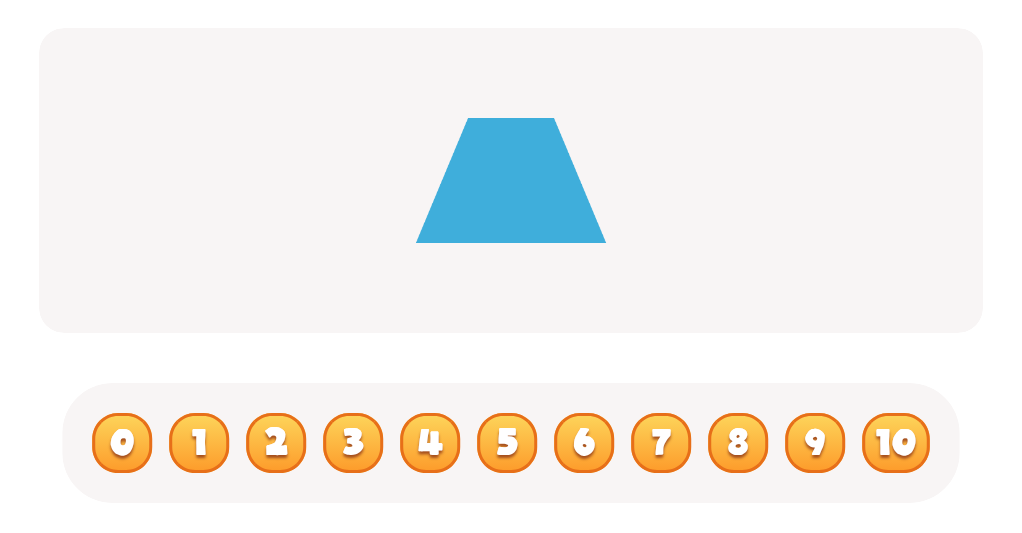
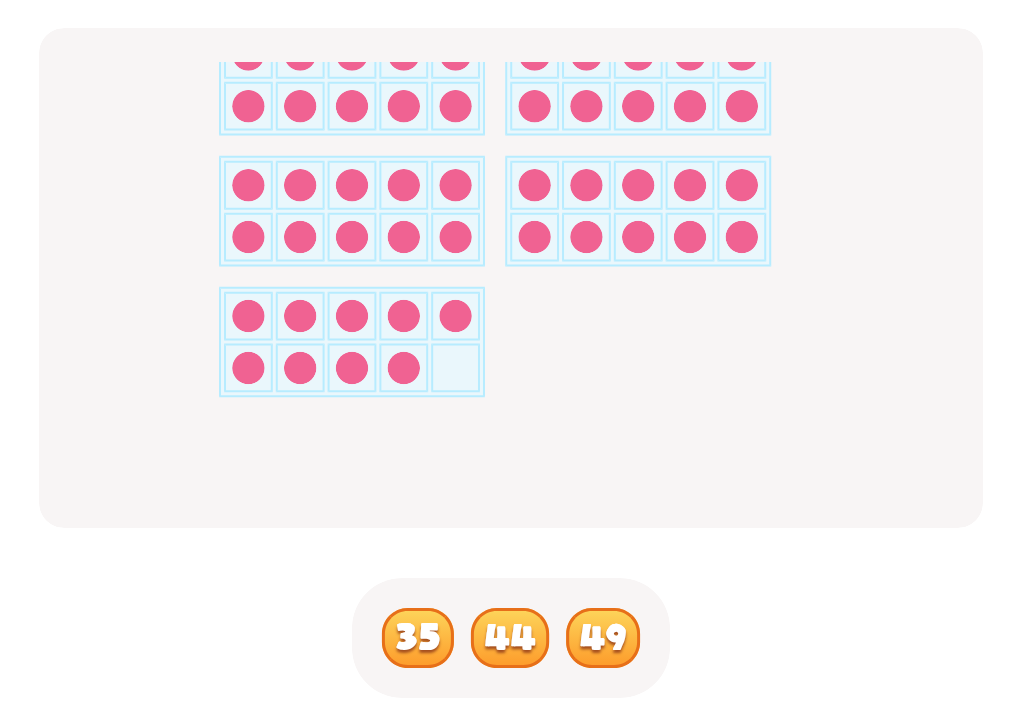
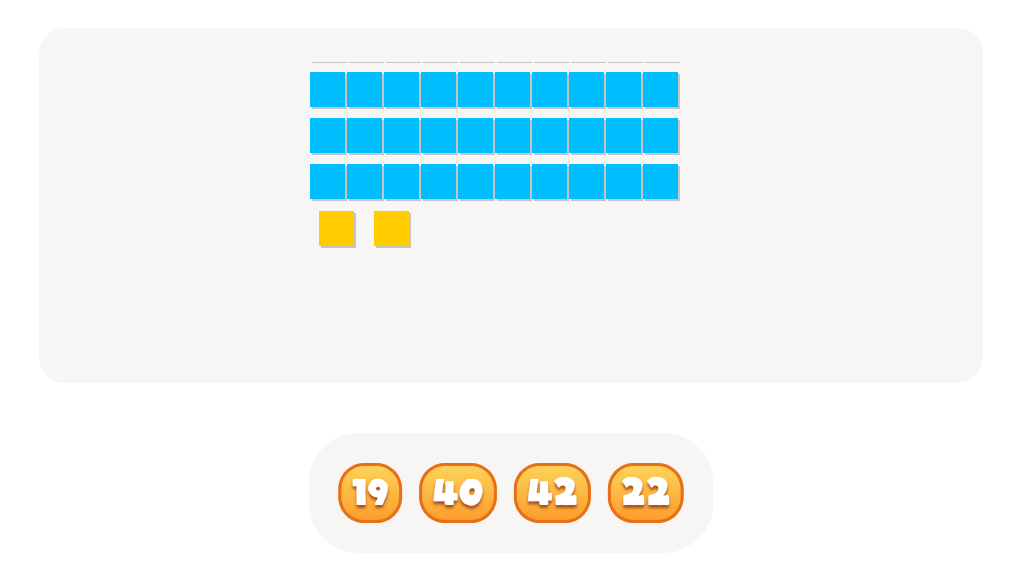

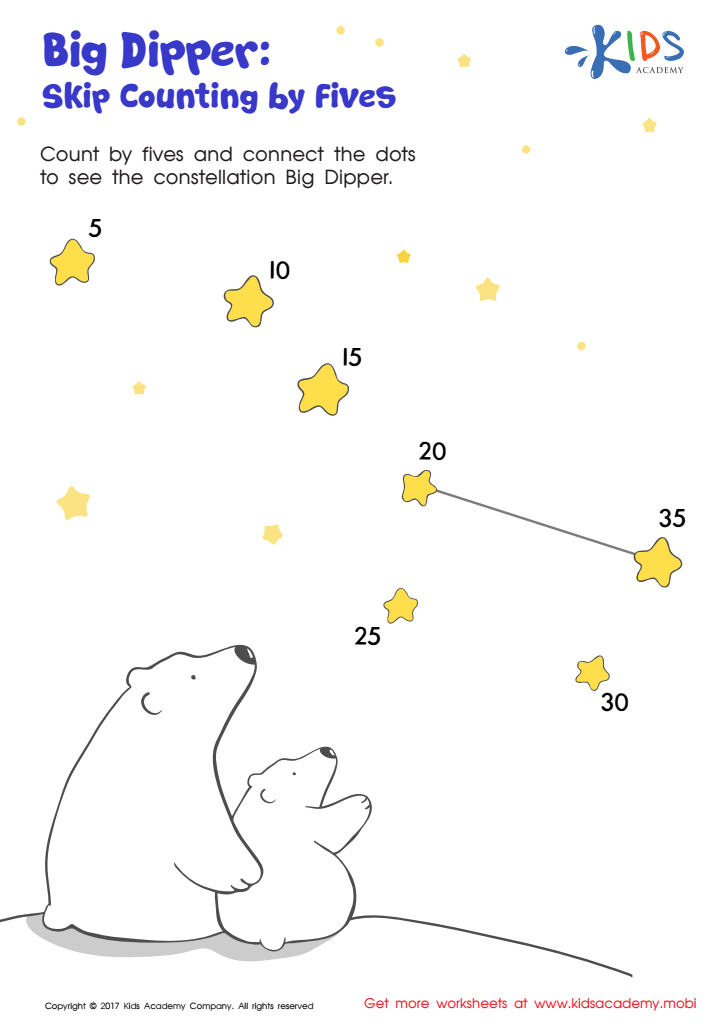







.jpg)












